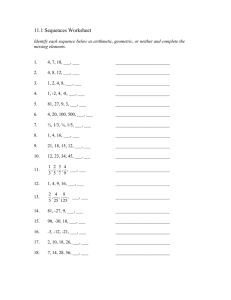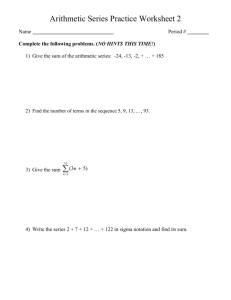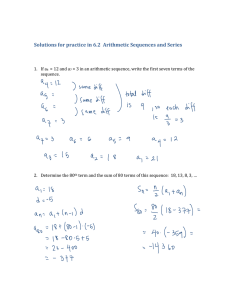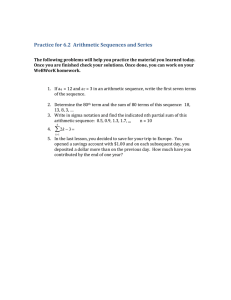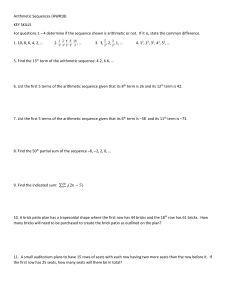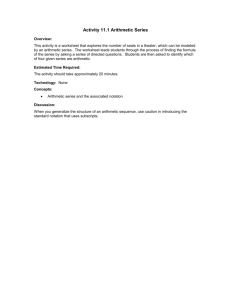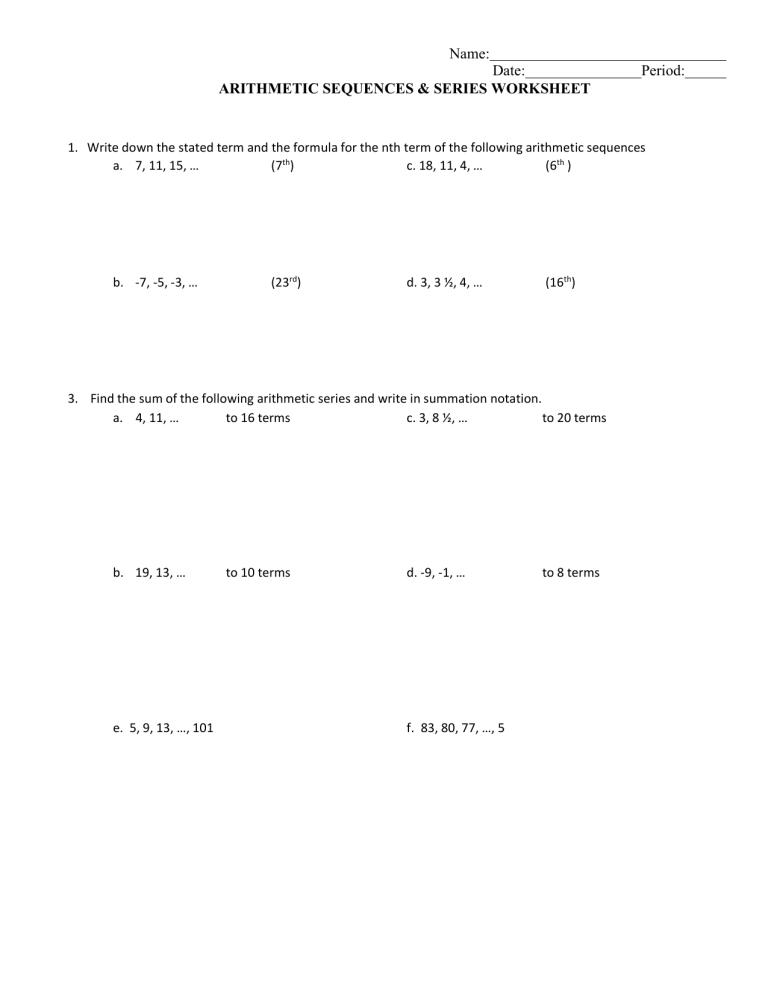
Name:
Date:
ARITHMETIC SEQUENCES & SERIES WORKSHEET
Period:
1. Write down the stated term and the formula for the nth term of the following arithmetic sequences
a. 7, 11, 15, …
(7th)
c. 18, 11, 4, …
(6th )
b. -7, -5, -3, …
(23rd)
d. 3, 3 ½, 4, …
(16th)
3. Find the sum of the following arithmetic series and write in summation notation.
a. 4, 11, …
to 16 terms
c. 3, 8 ½, …
to 20 terms
b. 19, 13, …
e. 5, 9, 13, …, 101
to 10 terms
d. -9, -1, …
f. 83, 80, 77, …, 5
to 8 terms
g. -17, -12, -7,…, 33
4. Fill in the gaps in this arithmetic sequence: -3,
h. 1, 1 ¼ , 1 ½, … 9 ¾
,
,
,
,
, 12
5. An arithmetic sequence has a 10th term of 17 and a 14th term of 30. Find the common difference.
6. An arithmetic sequence has a 7th term of 54 and a 13th term of 94. Find the common difference.
7. Find the sum of the positive terms of the arithmetic sequence 85, 78, 71, … 1
8. A theater has 32 rows of seats. If there are 26 seats in the 1st row, 30 in the 2nd, 34 in the 3rd, and so on,
how many seats are there in all? Assume the pattern continues.
9.
There are 20 rows of seats on a concert hall: 25 seats are in the 1 st row, 27 seats on the 2nd row, 29 seats on the
3rd row, and so on. If the price per ticket is $32, how much will be the total sales for a one-night concert if all
seats are taken?
10. How many terms of the arithmetic sequence {1,3,5,7,…} will give a sum of 961?
11. How many terms of the arithmetic sequence {2,4,6,8,…} will give a sum of 600?
